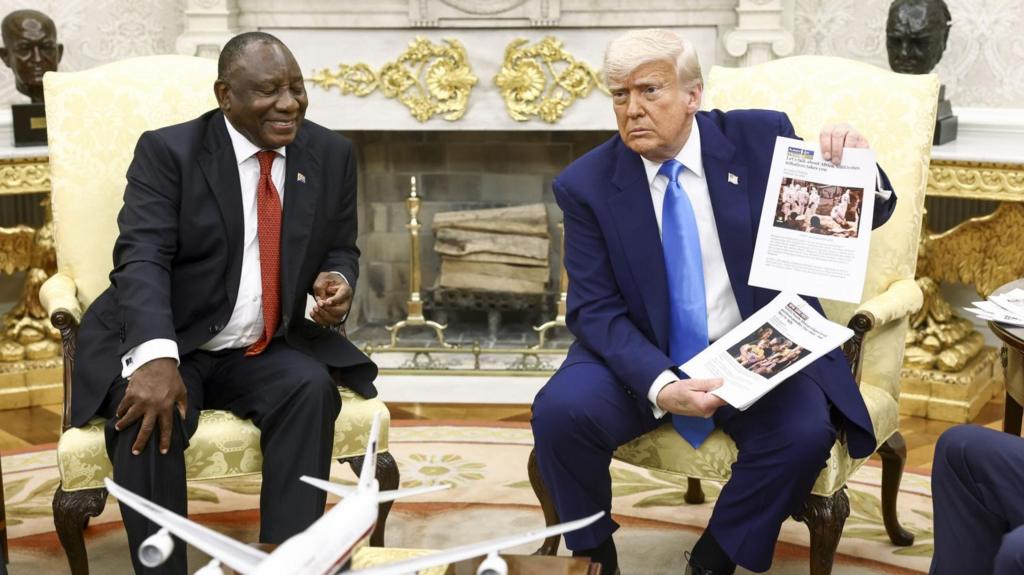US President Claims for Genocide Against White Farmers in South Africa Sparking Controversy
On June 2, 2025, US President Donald Trump addressed South African President Cyril Ramaphosa during a White House meeting, pressing him on unsubstantiated allegations of genocide being directed against white farmers in South Africa. This confrontation comes in the wake of the US government’s recent decision to grant asylum to approximately 60 Afrikaners, a move that has stirred tensions between the two nations.
The meeting was intended to mend the frayed relations following the asylum grants; however, it quickly became contentious. Trump accused Ramaphosa of permitting the murder and persecution of white farmers, prompting a defensive response from the South African leader.
A Complex Historical Context
The Afrikaners, a group that forms a small portion of South Africa’s diverse population, are primarily descendants of European settlers, with Dutch, German, and French ancestry. They have been historically linked to agriculture and were significant players in South Africa’s sociopolitical landscape during the apartheid era, which enforced strict racial segregation from 1948 until its dismantling in 1994.
Today, Afrikaners number around 2.5 million within a nation of over 60 million people, representing about 4% of the population. Despite lingering perceptions of oppression among some white South Africans, there is no official recognition of a genocide from political parties, including those directly representing Afrikaners.
Responses to Claims of Genocide
Notably, John Steenhuisen, leader of the Democratic Alliance, South Africa’s second-largest political party, dismissed Trump’s assertions as “nonsense.” Furthermore, Jaco Kleynhans, an official from the Afrikaner lobby group Solidarity, clarified that claims of genocide and government land seizures lacked any factual basis. In fact, a recent judicial ruling characterized the notion of genocide in South Africa as “clearly imagined.” This was highlighted by Police Minister Senzo Mchunu, who provided crime statistics illustrating that the majority of recent farm murders involved black victims, casting doubt on the allegations of racial targeting.
International Perception and Political Fallout
During previous discussions, Trump showcased videos he claimed served as evidence of the genocide, eliciting a firm rebuttal from Ramaphosa, who reiterated the country’s commitment to free expression and refuted claims that any specific racial group was being persecuted.
| Aspect | Details |
|---|---|
| Afrikaner Population | Approx. 2.5 million (4% of total population) |
| Claims of Genocide | Widely refuted by South African political leaders |
| Recent Farm Killings | Majority of victims identified as black |
| US Asylum Seekers | Approximately 60 Afrikaners granted asylum |
The Future of Afrikaners in South Africa
Although there has been speculation over an exodus of Afrikaners to the US, interest appears modest relative to the group’s size. A business organization noted that nearly 70,000 Afrikaners expressed interest in resettlement. However, many within the community feel a strong connection to South Africa, with influential voices advocating for their continued presence in the country.
In conclusion, as political tensions persist between the US and South Africa, the narrative surrounding the plight of Afrikaners continues to provoke debate both domestically and internationally. The claims of persecution are met with skepticism by many South African leaders, emphasizing a need for comprehensive discussion rooted in factual evidence rather than sensational conjecture.


